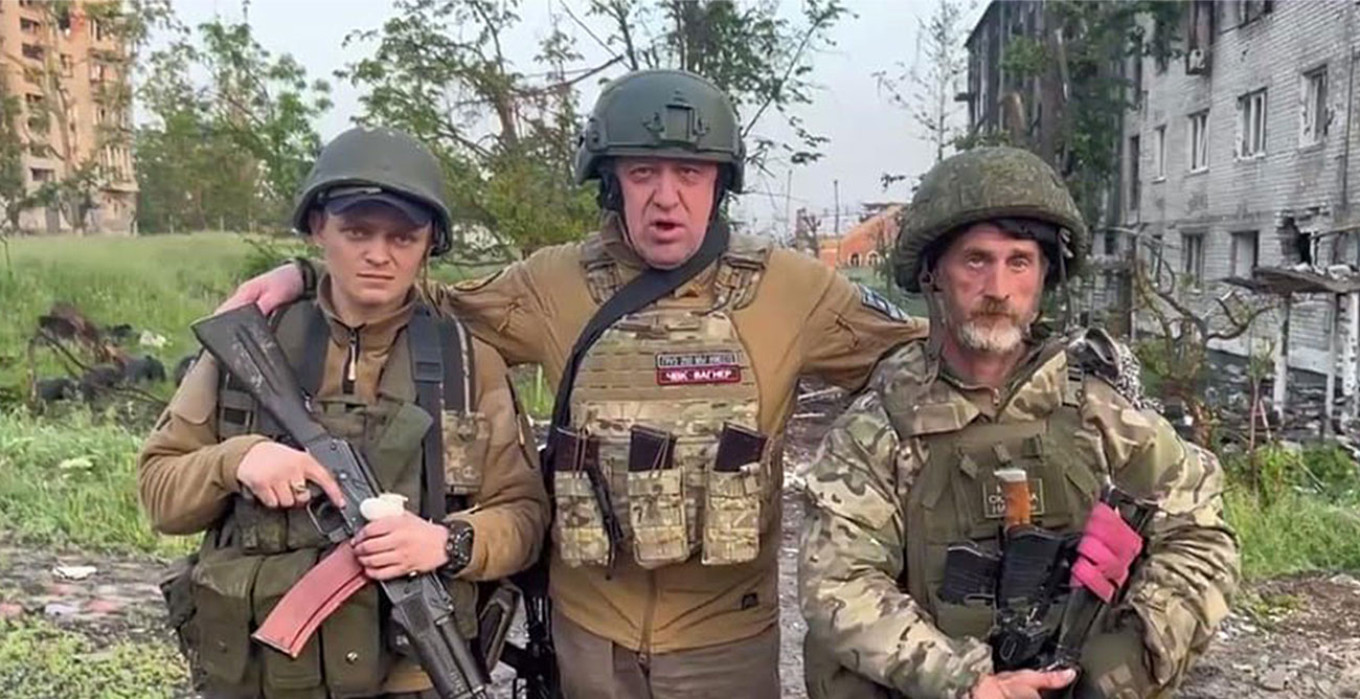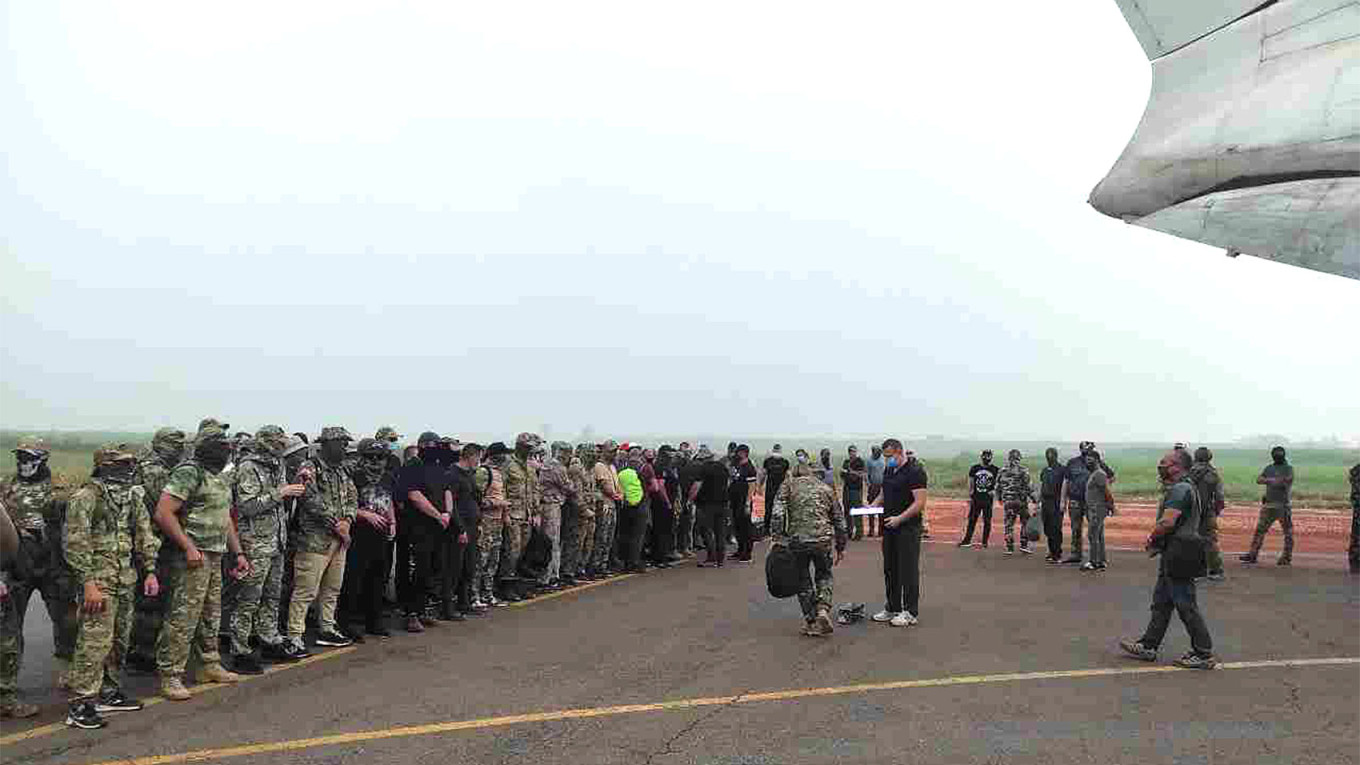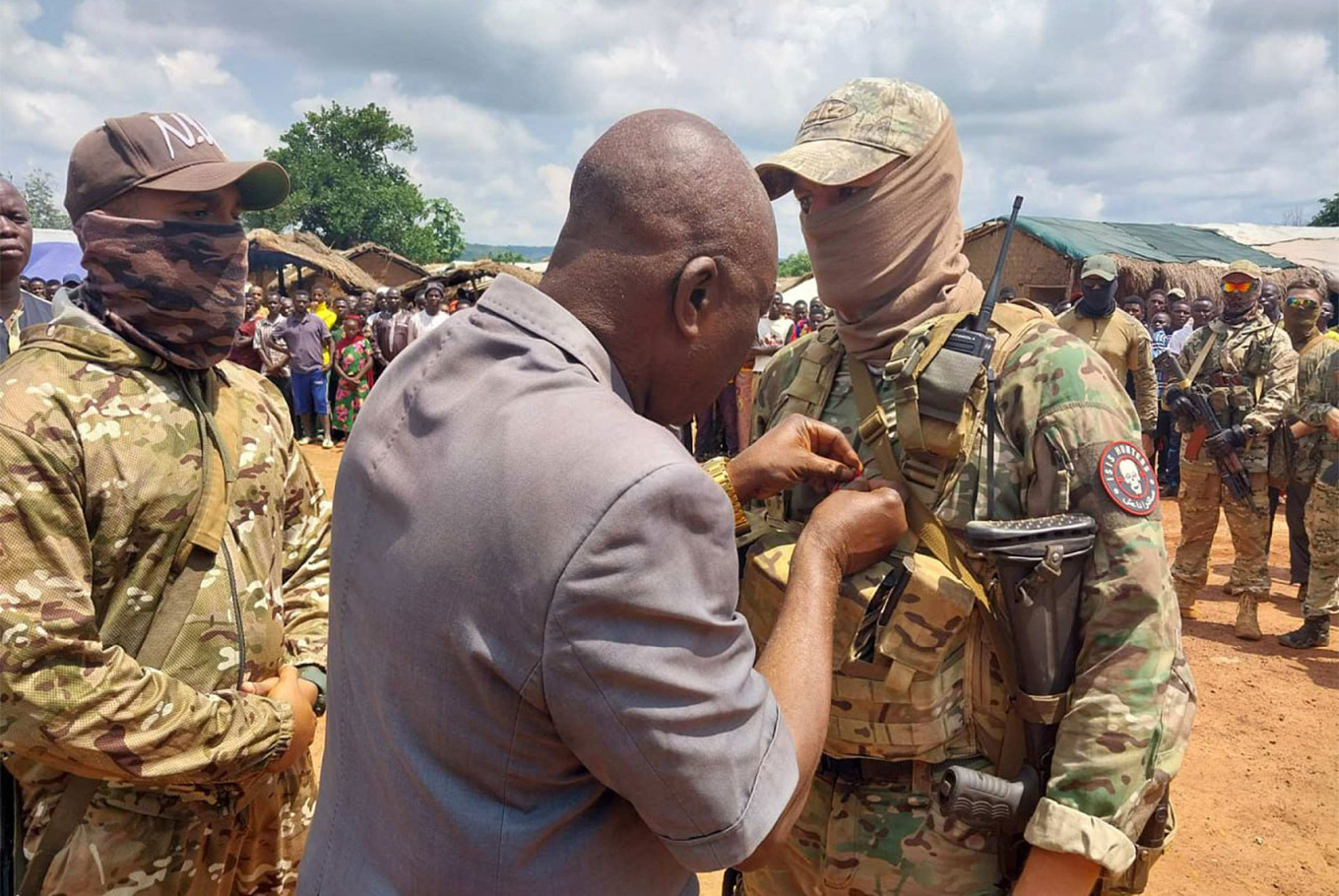The Wagner mercenary outfit’s short-lived mutiny against Russia’s military leadership has cast a shadow of uncertainty over the future of the private military group’s far-flung presence abroad, where it worked to covertly advance the Kremlin’s geopolitical interests.
While the Kremlin swiftly moved to dissolve Wagner’s structures in Russia and Ukraine by handing its military hardware to the conventional Russian military and offering its members to sign contracts with the Defense Ministry, the future of its overseas units remains highly volatile, experts say.
“It will be important for Moscow to take over these operations because they give [Wagner founder Yevgeny] Prigozhin some sort of leverage,” said Ivan Kłyszcz, an expert at the International Center for Defense and Security in Tallinn, Estonia.
In nearly a decade of operation, Wagner’s mercenaries have taken part in an array of conflicts throughout the world, including in Syria, Libya, the Central African Republic (CAR), Mali and Sudan.
Having boots on the ground in some of the world’s most volatile places allowed Prigozhin to build a transnational illicit business empire, as multiple investigations suggest, but it also made Wagner a guarantor of Russia’s political influence in parts of Africa and the Middle East.

Wagner has been operating in Syria since 2015, with 1,000 to 2,000 fighters working in close cooperation with the Defense Ministry and playing a crucial role in safeguarding Russia’s foothold in the Syrian economy, according to Victor Tricaud, senior analyst at Control Risks, a global risk consultancy firm.
“More realistically, these forces could either remain part of a largely similar paramilitary structure under another leadership… [be] put under the command of the Russian military, or folded into another Moscow-backed PMC operating in Syria,” said Tricaud, who considers Wagner’s complete withdrawal “highly unlikely.”
“The Kremlin will likely deploy similar reorganization strategies in both Syria and Libya,” Tricaud told The Moscow Times.
Insider information revealed by Reuters earlier this month suggested that Syrian authorities and Russian military commanders indeed offered Wagner mercenaries to sign contracts with the Defense Ministry in the early hours of the rebellion. Fighters who refused the terms were allegedly flown out of the country shortly after.
In addition to military involvement, Prigozhin also possessed wide-ranging business interests in Syria — from receiving a share of revenues from the oil fields “liberated” by Wagner to extending loans to the government of Moscow-backed dictator Bashar al-Assad.
“Wagner’s investments in Syria did exist on paper and were significant,” said Karam Shaar, a senior fellow at the Washington-based think tank New Lines Institute and specialist on Syria’s economy. “However, they were not generating profit, they were dormant.”
“I think what Putin is going to do is basically force Prigozhin to hand these investments over to another investor,” Shaar told The Moscow Times.
But experts interviewed by The Moscow Times agreed that while the Kremlin will inevitably seize all of Wagner’s foreign operations, most of them are highly unlikely to be incorporated into official government structures such as the Defense or Foreign Ministry.
“What the Kremlin will do is the same thing it does every time it seizes a company: it will divide those assets up among the elite, particularly the oligarchs,” said Jeff Hawn, a non-resident fellow at the New Lines Institute.

Wagner’s existence in the shadow of the state has long offered an array of benefits to the Kremlin, the most apparent one being that Russia was able to maintain a considerable military presence in multiple foreign locations with no need to inform the Russian public of its financial or human costs.
“Wagner allows the regime to have influence abroad without putting all of its eggs in one basket: it doesn’t need to give more funding or support to the military directly or the Foreign Ministry,” said Hawn.
Now that Wagner’s global assets are up for grabs, Kremlin-linked tycoons could also make use of Wagner’s global trafficking routes and logistics infrastructure, which includes as many as 65 shell companies worldwide among other assets, according to Hawn.
A direct takeover is particularly unlikely in locations across Africa where Wagner mercenaries managed to gain a foothold backed by an extensive network of local contacts, institutional connections and business investments.

The paramilitary group’s unmatched expertise and far-reaching presence make replacing it both nearly impossible and highly undesirable for the Kremlin, especially in places like CAR and Mali.
“Wagner has been at the forefront of defining what Russia’s interests in Africa are. They are operating in highly complex conflicts with very powerful local actors and it has taken them years to figure out how these things work,” John Lechner, the author of a forthcoming book about Wagner, told The Moscow Times.
Several hundred Wagner fighters arrived in CAR’s capital of Bangui on Monday to replace their fellow mercenaries who departed the country in the wake of the mutiny. That departure had initially stirred speculation that the group might leave the country for good, though CAR’s presidency firmly denied this.
Lechner confirmed that CAR is likely to witness a “continuation of the status quo” when it comes to Wagner’s presence in the short term.
“Even if we were to see a change in management… I think a lot of the same faces would still be around,” he said.